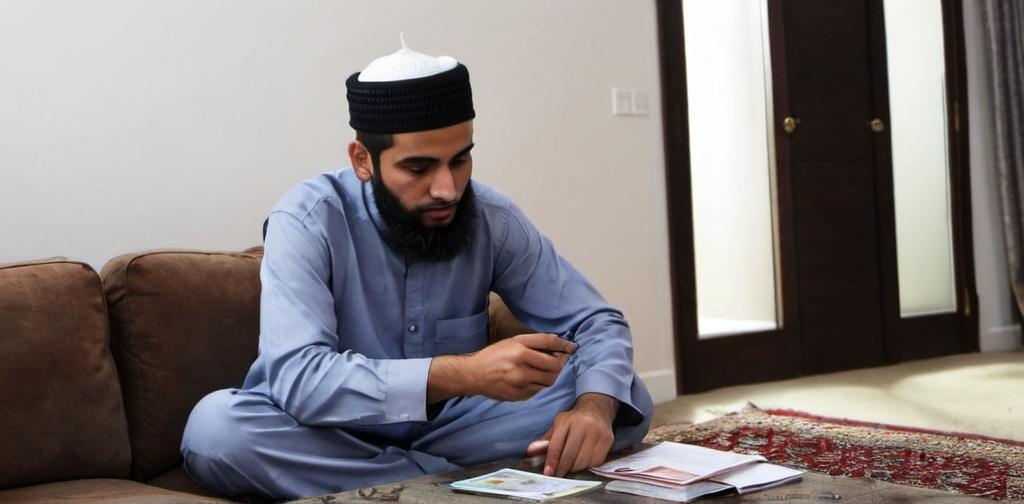Learn more about Forex Trading

Forex Trading: Halal or Haram?
Forex trading, the buying and selling of currencies, has become a popular topic among Muslim investors wanting to make sure their financial activities align with Islamic law. The question boils down to whether it’s halal (permissible) or haram (forbidden). To get a handle on this, we need to look at the principles of Islamic finance and see how they bump against forex trading.
Principles of Islamic Finance
Islamic finance is based on Sharia law and has specific rules about earning and using money. Two big no-nos in Islamic finance are riba (usury or interest) and gharar (excessive uncertainty). Investments should be grounded in ethical practices, without engaging in exploitative behavior. So, does forex trading fit within these principles?
Interest (Riba)
Riba is a hot topic. In the context of forex trading, it usually pops up with rollover fees. When traders hold positions overnight, many brokers charge or pay interest, which is riba and considered haram. Some brokers offer Islamic or swap-free accounts to dodge this issue, but it’s crucial to verify their compliance with Sharia law.
Uncertainty (Gharar)
Forex trading doesn’t shy away from uncertainty. Currency values can swing wildly due to global events, economic data, or even a tweet. This volatility could edge into gharar territory, making it a concern for Islamic investors. However, some scholars argue that if a trader is knowledgeable and informed, the element of speculation can be minimized.
Spot Forex vs. Options and Futures
Understanding the different types of forex products is key.
Spot Forex
Spot forex involves trading currencies at the current market price with the exchange happening quickly. Many argue this type doesn’t involve riba since there’s no interest-bearing element. This could make it halal if conducted ethically.
Forex Options and Futures
Options and futures contracts are a different kettle of fish. They involve agreements to trade currencies at a future date and price, introducing higher levels of speculation and uncertainty (read: gharar). The consensus among scholars is that these products are typically haram.
The Broker’s Role
The broker you use can make or break your efforts to keep trading halal. Islamic or swap-free accounts are designed to avoid interest. Still, some skeptics claim these accounts may have hidden fees that mimic interest. It’s vital to pick a broker with a solid reputation for Sharia compliance. Trade with brokers who clearly outline their policies and have been vetted by Islamic scholars or financial institutions. Independent comparison resources such as FBO (Forex Brokers Online) can help traders review regulated brokers, check which platforms offer swap-free Islamic accounts, and identify those with transparent fee structures.
Fatwas and Scholarly Opinions
To further muddy the waters, not all scholars agree on the halal vs. haram status of forex trading. Some argue it aligns with Islamic principles if executed responsibly and without interest. Others maintain that due to its speculative nature, it’s haram. The differing opinions highlight the importance of personal due diligence and perhaps consulting a scholar for individual guidance.
Personal Responsibility and Ethical Considerations
When it comes to forex trading, personal accountability is vital. Besides satisfying the basic rules of Islamic finance, consider the ethical implications of your trading activities. Are you trading in a way that respects the rights of others and contributes positively to society? Just because something might be legally permissible doesn’t always mean it’s ethically or morally sound.
Conclusion
The halal or haram status of forex trading is not a straightforward matter. A deep dive into Islamic finance principles shows that the decision varies, leaning heavily on personal discretion and scholarly guidance. If you’re keen to dip your toes into forex trading, ensure you’re informed and choose brokers and products that align with Islamic values. Keep an eye on developments in Islamic finance, as interpretations and rulings can evolve. At the end of the day, Forex trading requires a balance between religious obligations and financial goals. The choice is personal, but the stakes are spiritual and financial.